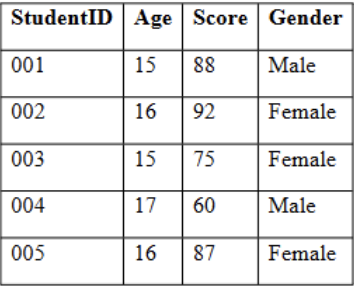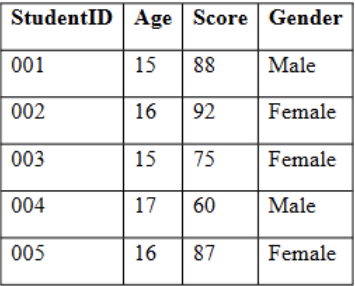Psych Science Methods (Test 1)
1/33
There's no tags or description
Looks like no tags are added yet.
Name | Mastery | Learn | Test | Matching | Spaced |
|---|
No study sessions yet.
34 Terms
What is the primary goal of science?
To acquire knowledge through observation, evaluation, & interpretation.
What is the purpose of the scientific/research methods?
To systematically acquire, modify, and integrate knowledge.
What does it mean for a phenomenon to be indirectly observable?
It can be detected using tools or instruments.
What does it mean for a phenomenon to be measurable?
It can be quantified or assigned a specific value.
A researcher believes that sleep improves memory consolidation. They predict that individuals who sleep 8 hours will perform better on a memory test than those who sleep 4 hours. They conduct an experiment, measure memory test scores, and find that the 8-hour group score significantly higher. What is the theory?
Sleep improves memory consolidation.
A researcher believes that sleep improves memory consolidation. They predict that individuals who sleep 8 hours will perform better on a memory test than those who sleep 4 hours. They conduct an experiment, measure memory test scores, and find that the 8-hour group score significantly higher. What is the hypothesis?
Individuals who sleep 8 hours will perform better on a memory test than those who sleep 4 hours.
A researcher believes that sleep improves memory consolidation. They predict that individuals who sleep 8 hours will perform better on a memory test than those who sleep 4 hours. They conduct an experiment, measure memory test scores, and find that the 8-hour group score significantly higher. Does the data support or refine the theory?
Support the theory.
A researcher proposes that excessive social media use negatively impacts self-esteem. They predict that individuals who spend more than 3 hours daily on social media will have lower self-esteem scores than those who spend less than 1 hour. After analyzing survey data, they find no significant difference in self-esteem scores between the groups. What is the theory?
Excessive social media use negatively impacts self-esteem.
A researcher proposes that excessive social media use negatively impacts self-esteem. They predict that individuals who spend more than 3 hours daily on social media will have lower self-esteem scores than those who spend less than 1 hour. After analyzing survey data, they find no significant difference in self-esteem scores between the groups. What is the hypothesis?
Individuals who spend more than 3 hours daily on social media will have lower self-esteem scores than those who spend less than 1 hour.
A researcher proposes that excessive social media use negatively impacts self-esteem. They predict that individuals who spend more than 3 hours daily on social media will have lower self-esteem scores than those who spend less than 1 hour. After analyzing survey data, they find no significant difference in self-esteem scores between the groups. Does the date support or refine the theory?
Refine the theory.
Which of the following best describes a variable?
A characteristic or attribute that can vary or change.
Which option best exemplifies a quantitative variable?
Temperature
Which of the following is a nominal variable?
Types of fruit (apple, banana, cherry)
Which of the following best describes a dummy variable?
A binary variable used to indicate the presence (1) or absence (0) of a characteristic.

How many variables and how many observations are present in their data set?
There are 5 observations and 4 variables.

Transfer one of the quantitative variables to an ordinal qualitative variable, show the new values of that variable.
We can transfer the score to letters grades: B, A, C, D, B.
Which of the following best describes the target population?
The entire group of individuals or objects relevant to the study.
What does the accessible population refer to?
The portion of the target population that is realistically available for study.
The sampling frame is best defined as:
The comprehensive list or database of individuals from the accessible population.
Which sampling method gives every individual an equal chance of being selected?
Simple Random Sampling
Which sampling method is characterized by selecting individuals based on ease of access rather than random selection?
Convenience Sampling.
A researcher is investigating the general coding skills of students at Central State College. Although the college compromises 10 constituent colleges, the researcher only has access to three from the administration: the College of Arts (600 students), the College of Natural Sciences (500 students), and the College of Business (400 students). The study aims to compare coding abilities across these accessible colleges using data collected from 90 students as a sample. Population?
All the students in the college.
A researcher is investigating the general coding skills of students at Central State College. Although the college compromises 10 constituent colleges, the researcher only has access to three from the administration: the College of Arts (600 students), the College of Natural Sciences (500 students), and the College of Business (400 students). The study aims to compare coding abilities across these accessible colleges using data collected from 90 students as a sample. Accessible Population?
The students in the 3 departments.
A researcher is investigating the general coding skills of students at Central State College. Although the college compromises 10 constituent colleges, the researcher only has access to three from the administration: the College of Arts (600 students), the College of Natural Sciences (500 students), and the College of Business (400 students). The study aims to compare coding abilities across these accessible colleges using data collected from 90 students as a sample. Sampling frame?
A list of the students from the administration.
A researcher is investigating the general coding skills of students at Central State College. Although the college compromises 10 constituent colleges, the researcher only has access to three from the administration: the College of Arts (600 students), the College of Natural Sciences (500 students), and the College of Business (400 students). The study aims to compare coding abilities across these accessible colleges using data collected from 90 students as a sample. Sample?
The 90 students selected.
A researcher is investigating the general coding skills of students at Central State College. Although the college compromises 10 constituent colleges, the researcher only has access to three from the administration: the College of Arts (600 students), the College of Natural Sciences (500 students), and the College of Business (400 students). The study aims to compare coding abilities across these accessible colleges using data collected from 90 students as a sample. The researcher decides to use proportionate stratified sampling to select a total of 90 students from the three accessible colleges. Calculate the number of students to be selected from each college.
36, 30, 24
A researcher is investigating the general coding skills of students at Central State College. Although the college compromises 10 constituent colleges, the researcher only has access to three from the administration: the College of Arts (600 students), the College of Natural Sciences (500 students), and the College of Business (400 students). The study aims to compare coding abilities across these accessible colleges using data collected from 90 students as a sample. If the researcher opts for cluster sampling by randomly selecting entire colleges as clusters and, explain how this might introduce bias.
The students from a single college might not represent the overall coding skills of all students. For example, the college of arts students might not need to learn much coding skills.
Which of the following best describes the dependent variable (DV) in a study?
The outcome variable that is measured for change.
A confounding variable is best described as:
An extraneous variable related to both the IV and DV, potentially distorting their true relationship.
What is the role of a mediator in a study?
To serve as an intermediary that explains the process through which the IV influences the DV.
A study finds that regular physical exercise is associated with lower levels of depression among college students. However, students who exercise regularly also report better sleep quality, which might help alleviate depressive symptoms. What is the independent variable (IV) in this study?
Having regular exercise.
A study finds that regular physical exercise is associated with lower levels of depression among college students. However, students who exercise regularly also report better sleep quality, which might help alleviate depressive symptoms. What is the dependent variable (DV) in this study?
Depression level.
A study finds that regular physical exercise is associated with lower levels of depression among college students. However, students who exercise regularly also report better sleep quality, which might help alleviate depressive symptoms. In the context of this study, would sleep quality most likely function as a mediator or as a confounding variable? Briefly explain your reasoning.
Mediator as it explains a route exercise influences depression.
A study finds that regular physical exercise is associated with lower levels of depression among college students. However, students who exercise regularly also report better sleep quality, which might help alleviate depressive symptoms. If sleep quality is acting as a mediator (explaining how exercise leads to lower depression), propose a potential confounding variable that could also influence depression levels. Conversely, if sleep quality is acting as a confounding variable, suggest a potential mediator that might explain the relationship between exercise and depression.
Could be study stress which makes students exercise less and more depressed.